Best AI tools for< Run Different Llms >
20 - AI tool Sites
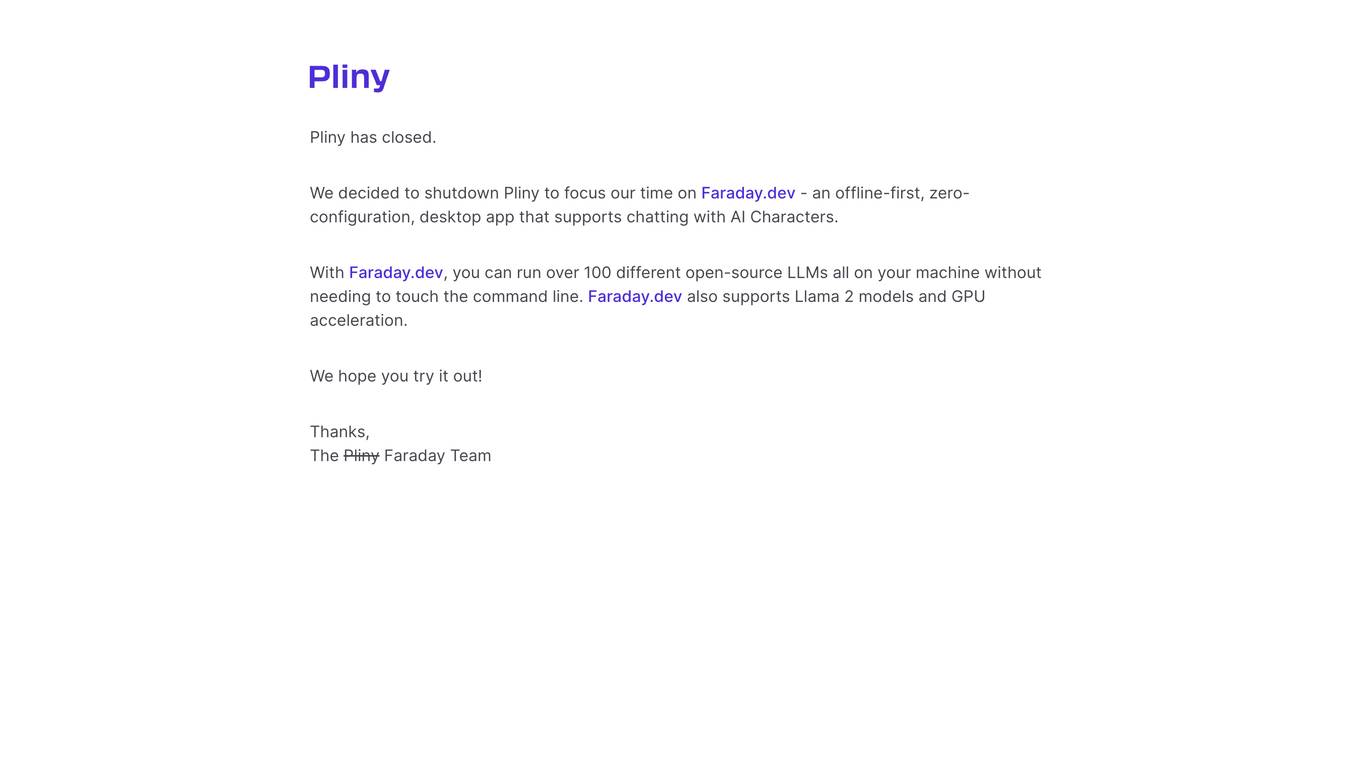
Faraday.dev
Faraday.dev is an offline-first, zero-configuration, desktop app that supports chatting with AI Characters. With Faraday.dev, you can run over 100 different open-source LLMs all on your machine without needing to touch the command line. Faraday.dev also supports Llama 2 models and GPU acceleration.
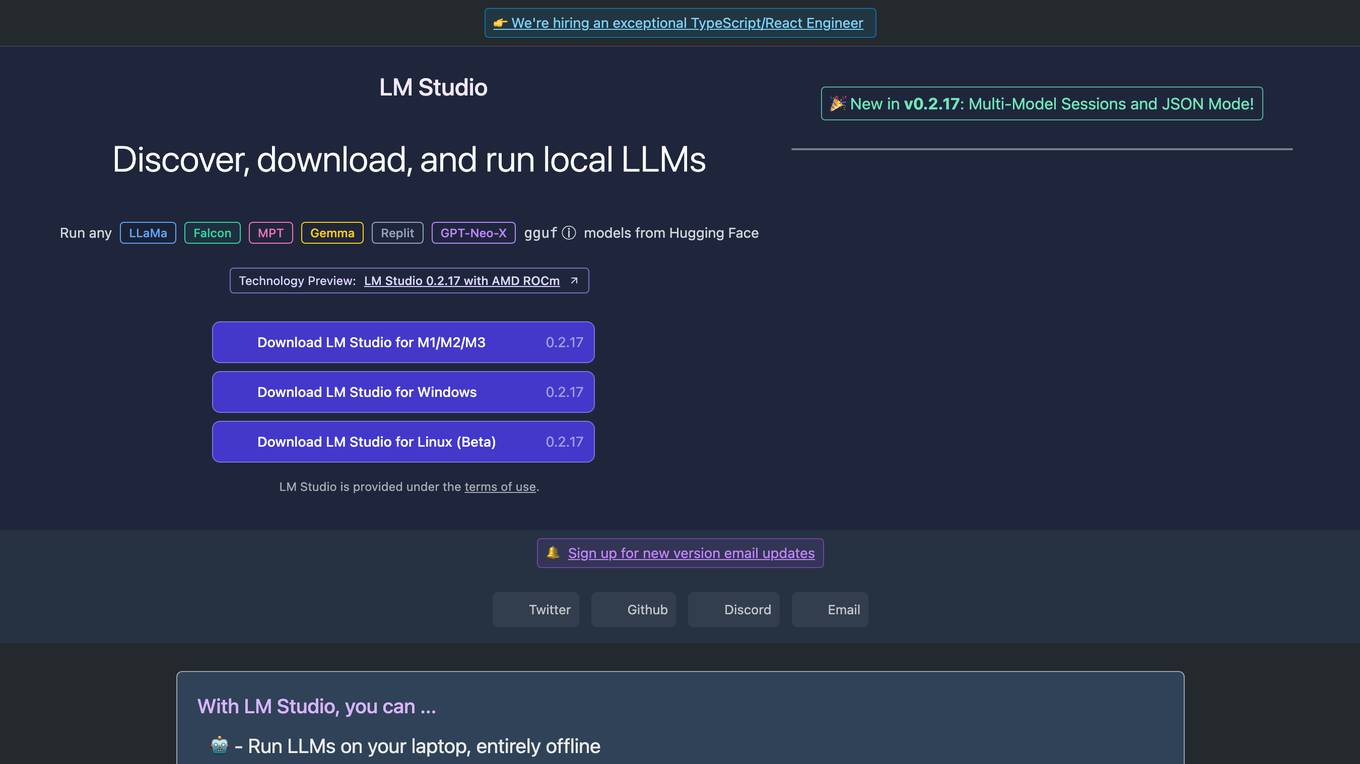
LM Studio
LM Studio is an AI tool designed for discovering, downloading, and running local LLMs (Large Language Models). Users can run LLMs on their laptops offline, use models through an in-app Chat UI or a local server, download compatible model files from HuggingFace repositories, and discover new LLMs. The tool ensures privacy by not collecting data or monitoring user actions, making it suitable for personal and business use. LM Studio supports various models like ggml Llama, MPT, and StarCoder on Hugging Face, with minimum hardware/software requirements specified for different platforms.
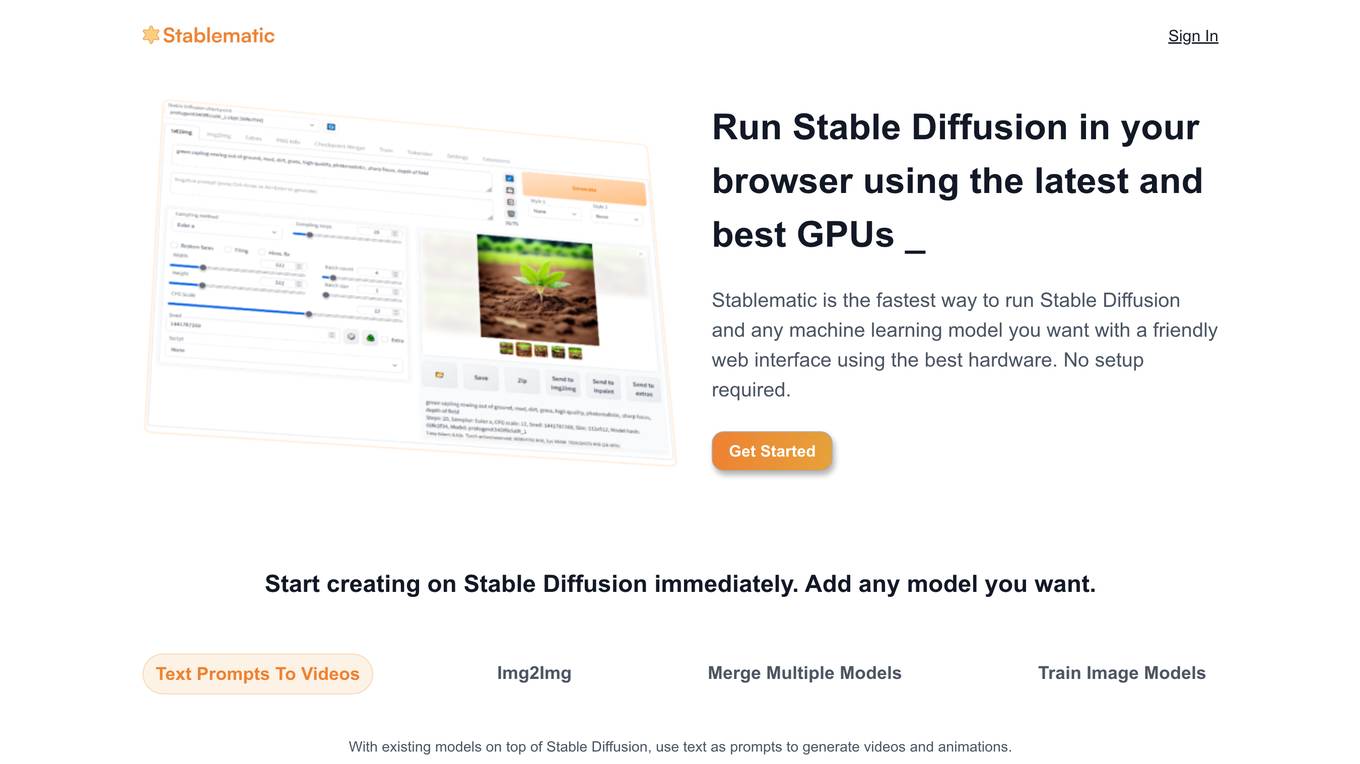
Stablematic
Stablematic is a web-based platform that allows users to run Stable Diffusion and other machine learning models without the need for local setup or hardware limitations. It provides a user-friendly interface, pre-installed plugins, and dedicated GPU resources for a seamless and efficient workflow. Users can generate images and videos from text prompts, merge multiple models, train custom models, and access a range of pre-trained models, including Dreambooth and CivitAi models. Stablematic also offers API access for developers and dedicated support for users to explore and utilize the capabilities of Stable Diffusion and other machine learning models.
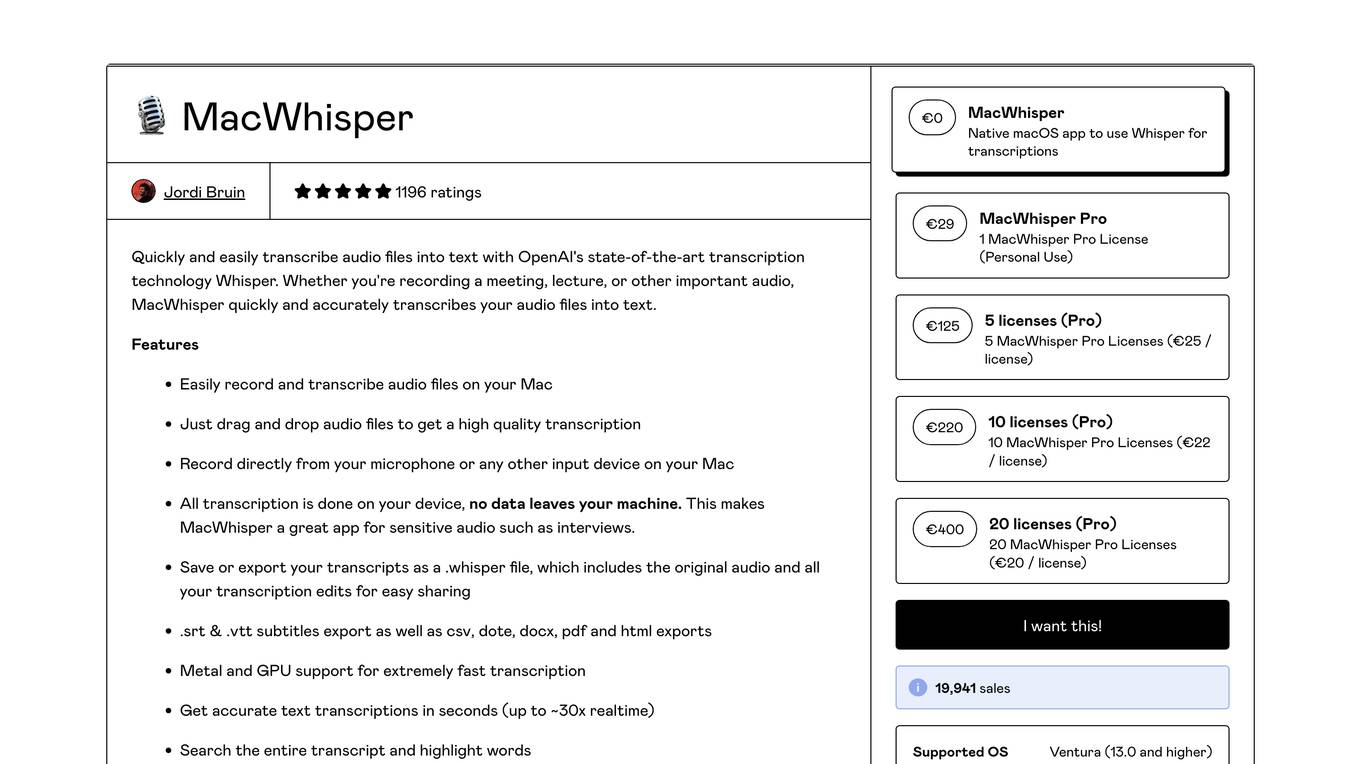
MacWhisper
MacWhisper is a native macOS application that utilizes OpenAI's Whisper technology for transcribing audio files into text. It offers a user-friendly interface for recording, transcribing, and editing audio, making it suitable for various use cases such as transcribing meetings, lectures, interviews, and podcasts. The application is designed to protect user privacy by performing all transcriptions locally on the device, ensuring that no data leaves the user's machine.
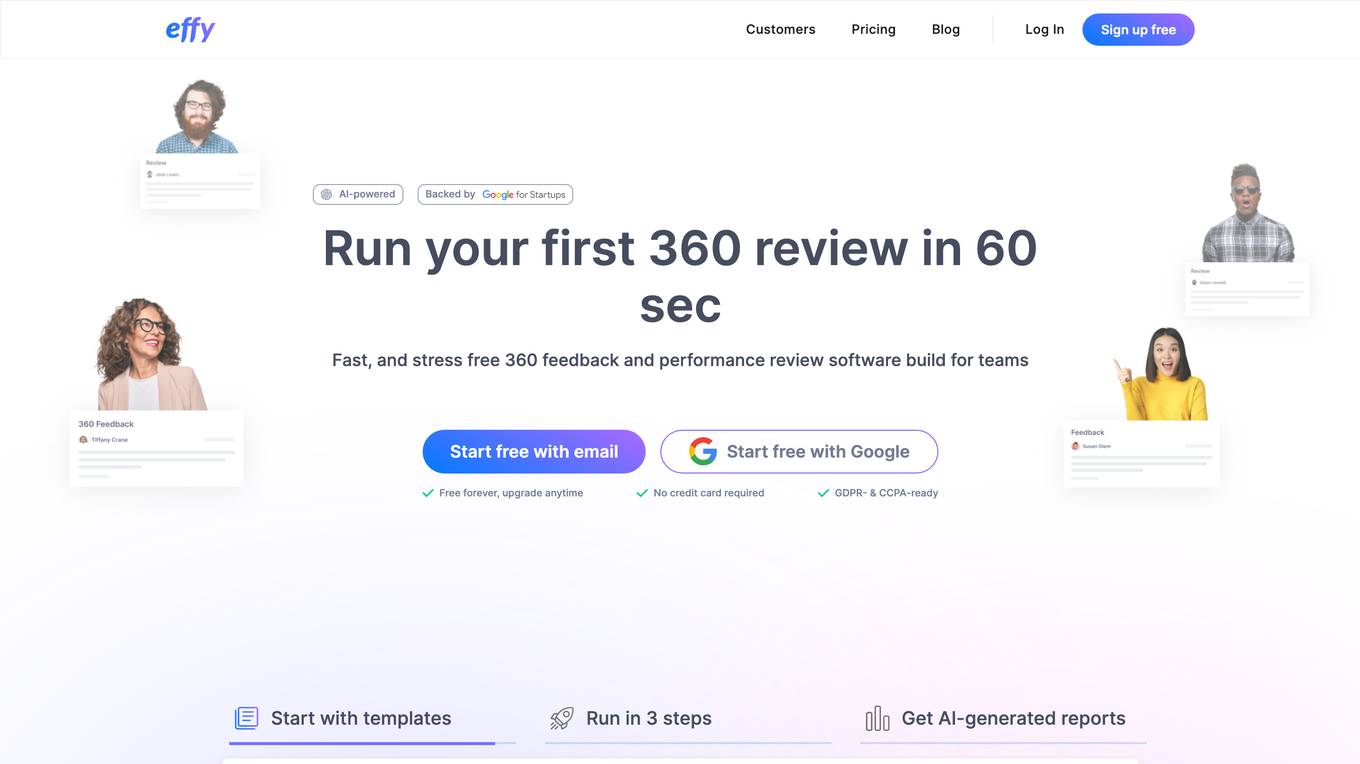
Effy AI
Effy AI is a free performance management software for teams. It is AI-powered and backed by Run your first 360 review in 60 sec. Fast, and stress-free 360 feedback and performance review software build for teams. With Effy AI, you can collect reviews from different sources such as self, peer, manager, and subordinate evaluations. The platform goes even further by allowing employees to suggest particular peers and seek approval from their manager, giving them a voice in their reviews. Effy AI uses cutting-edge artificial intelligence to carefully process reviewers' answers and generate comprehensive reports for each employee based on the review responses.
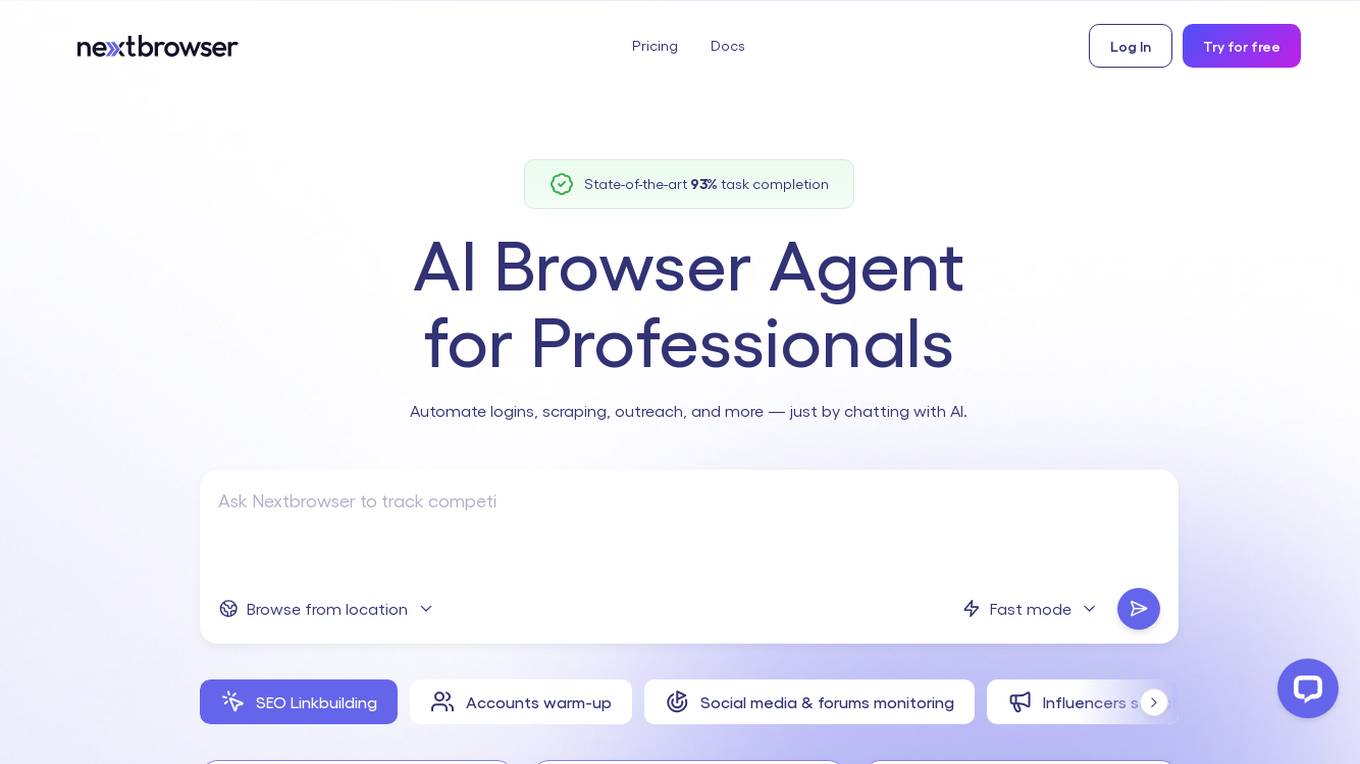
Nextbrowser
Nextbrowser is an AI-powered browser designed for sales and marketing professionals. It offers state-of-the-art AI capabilities to automate tasks such as logins, scraping, outreach, and more through natural language interactions with AI. The browser enables users to browse from different locations, offers fast and smart modes, and provides features like GPT-5 SEO, linkbuilding, accounts warm-up, and social media monitoring. Nextbrowser is trusted by modern teams for its efficiency in automating tasks and improving productivity in influencer search, SEO linkbuilding, and online accounts warm-up.
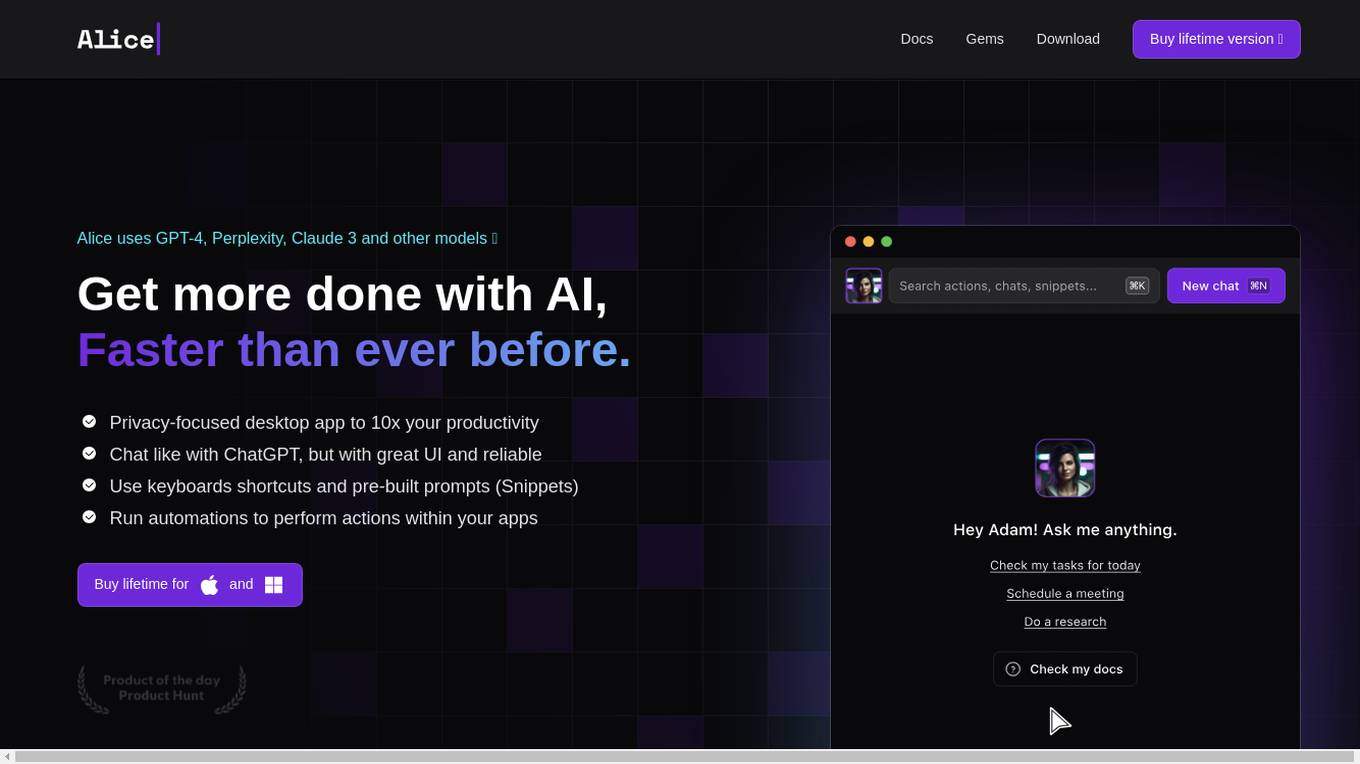
Alice App
Alice is a desktop application that provides access to advanced AI models like GPT-4, Perplexity, Claude 3, and others. It offers a user-friendly interface with features such as keyboard shortcuts, pre-built prompts (Snippets), and the ability to run automations within other applications. Alice is designed to enhance productivity and streamline tasks by providing quick access to AI-powered assistance.

Functionize
Functionize is an AI-powered test automation platform that helps enterprises improve their product quality and release faster. It uses machine learning to automate test creation, maintenance, and execution, and provides a range of features to help teams collaborate and manage their testing process. Functionize integrates with popular CI/CD tools and DevOps pipelines, and offers a range of pricing options to suit different needs.
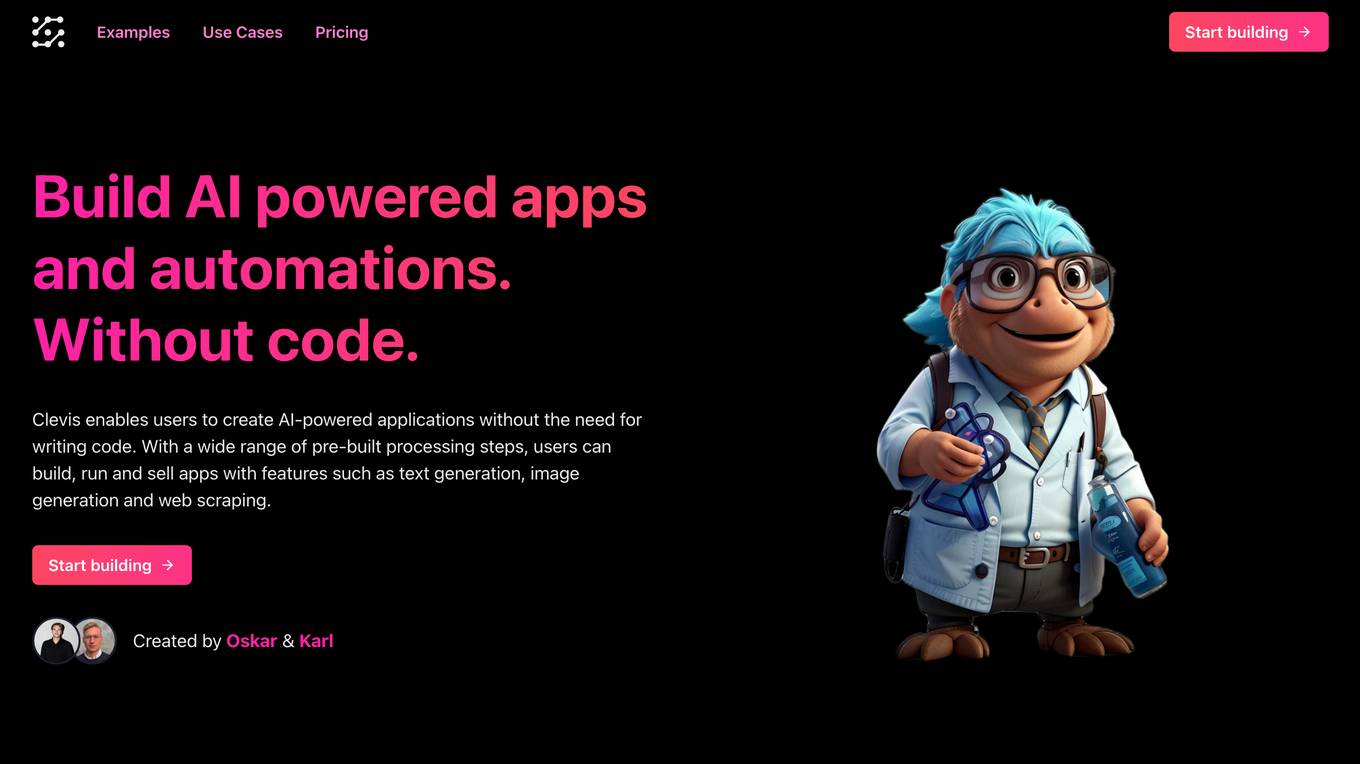
Clevis
Clevis is a platform that allows users to build and sell AI-powered applications without the need for coding. With a variety of pre-built processing steps, users can create apps with features like text generation, image generation, and web scraping. Clevis provides an easy-to-use editor, templates, sharing options, and API integration to help users launch their AI-powered apps quickly. The platform also offers customization options, data upload capabilities, and the ability to schedule app runs. Clevis offers a free trial period and flexible pricing plans to cater to different user needs.

SellerMate.AI
SellerMate.AI is an AI-powered tool designed to optimize Amazon PPC ads performance. It offers features such as AI-powered recommendations, custom reports, smart automations, and business process streamlining. The tool helps users identify growth opportunities, achieve target ACOS, and streamline business processes through data-driven insights and automations. SellerMate.AI is trusted by over 1000 brands across 20+ different country's marketplaces.

More Views AI
More Views AI is an AI tool designed to help YouTube content creators increase their view count by testing different video settings. The tool uses artificial intelligence to analyze video titles, suggest variations, and run A/B tests to determine the best-performing title. It offers features such as automatic A/B toggling, performance tracking, views optimization, AI-generated title suggestions, and thumbnail testing. Users can connect their YouTube account, set up experiments in seconds, and let the algorithm optimize their video titles to attract more views.

Face to All
Face to All is an AI-powered tool that allows users to transform their face photos into stylized portraits. With a vast selection of art styles to choose from, users can customize their portraits to reflect their personal preferences. The tool is free to use online, making it accessible to everyone. Face to All is easy to use, requiring only a few simple steps to generate a stylized portrait. Users simply need to upload a face photo, select a desired art style, and hit Run. The tool will then generate a stylized portrait that can be admired and shared. Face to All is a fun and creative way to explore different art styles and create unique portraits.

Webflow Optimize
Webflow Optimize is a website optimization and personalization tool that empowers users to create, edit, and manage web content with ease. It offers features such as A/B testing, personalized site experiences, and AI-powered optimization. With Webflow Optimize, users can enhance their digital experiences, experiment with different variations, and deliver personalized content to visitors. The platform integrates seamlessly with Webflow's visual development environment, allowing users to create and launch variations without complex code implementations.
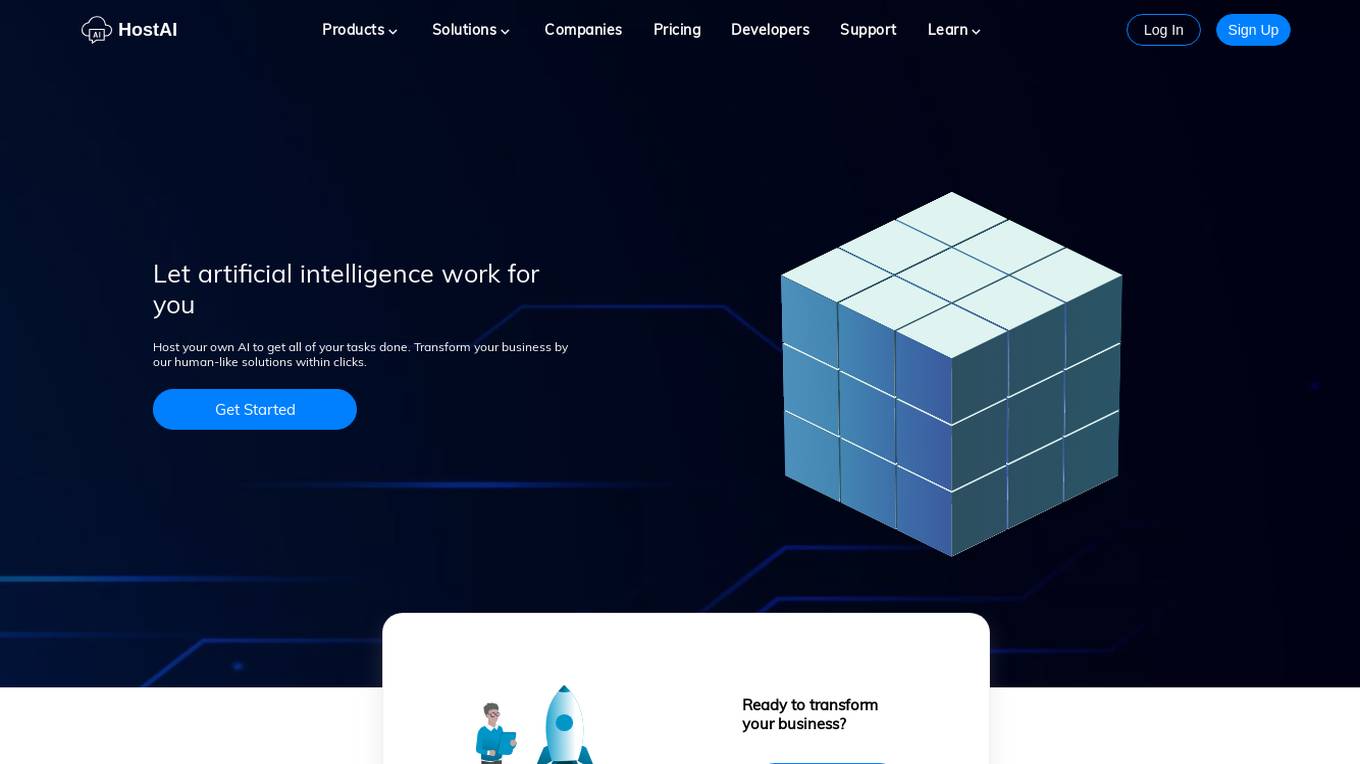
HostAI
HostAI is a platform that allows users to host their artificial intelligence models and applications with ease. It provides a user-friendly interface for managing and deploying AI projects, eliminating the need for complex server setups. With HostAI, users can seamlessly run their AI algorithms and applications in a secure and efficient environment. The platform supports various AI frameworks and libraries, making it versatile for different AI projects. HostAI simplifies the process of AI deployment, enabling users to focus on developing and improving their AI models.

Layla
Layla is a private AI assistant that operates offline on your device, ensuring complete privacy and no censorship. It offers different personalities, customizable features, downloadable characters, and advanced settings. Layla can chat, inspire, assist, entertain, and more, making it a versatile AI tool for various tasks. The application is constantly evolving with weekly updates, including features like real-time internet search, task reminders, social features, and 3D models. Layla utilizes cutting-edge technology to run Large Language Models on consumer hardware, providing a unique and personalized AI experience without the need for an internet connection.
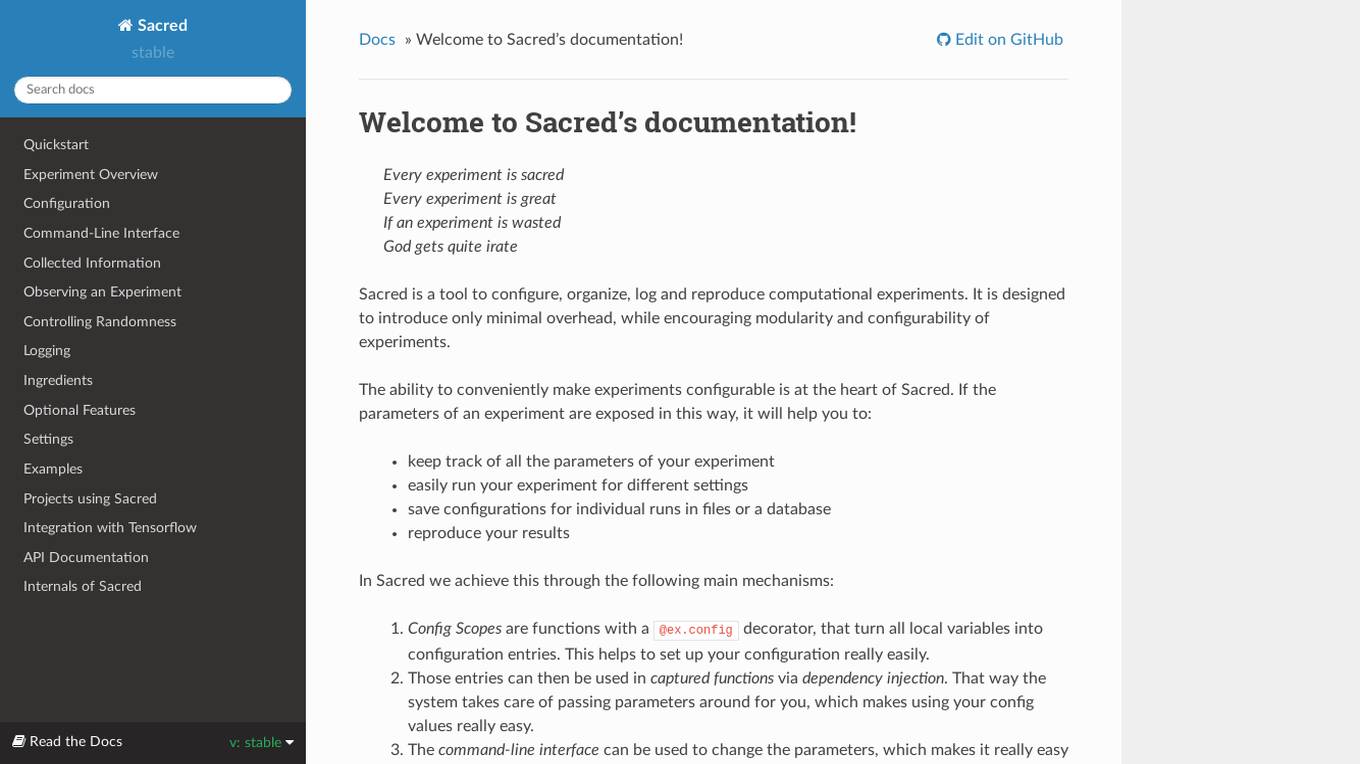
Sacred
Sacred is a tool to configure, organize, log and reproduce computational experiments. It is designed to introduce only minimal overhead, while encouraging modularity and configurability of experiments. The ability to conveniently make experiments configurable is at the heart of Sacred. If the parameters of an experiment are exposed in this way, it will help you to: keep track of all the parameters of your experiment easily run your experiment for different settings save configurations for individual runs in files or a database reproduce your results In Sacred we achieve this through the following main mechanisms: Config Scopes are functions with a @ex.config decorator, that turn all local variables into configuration entries. This helps to set up your configuration really easily. Those entries can then be used in captured functions via dependency injection. That way the system takes care of passing parameters around for you, which makes using your config values really easy. The command-line interface can be used to change the parameters, which makes it really easy to run your experiment with modified parameters. Observers log every information about your experiment and the configuration you used, and saves them for example to a Database. This helps to keep track of all your experiments. Automatic seeding helps controlling the randomness in your experiments, such that they stay reproducible.
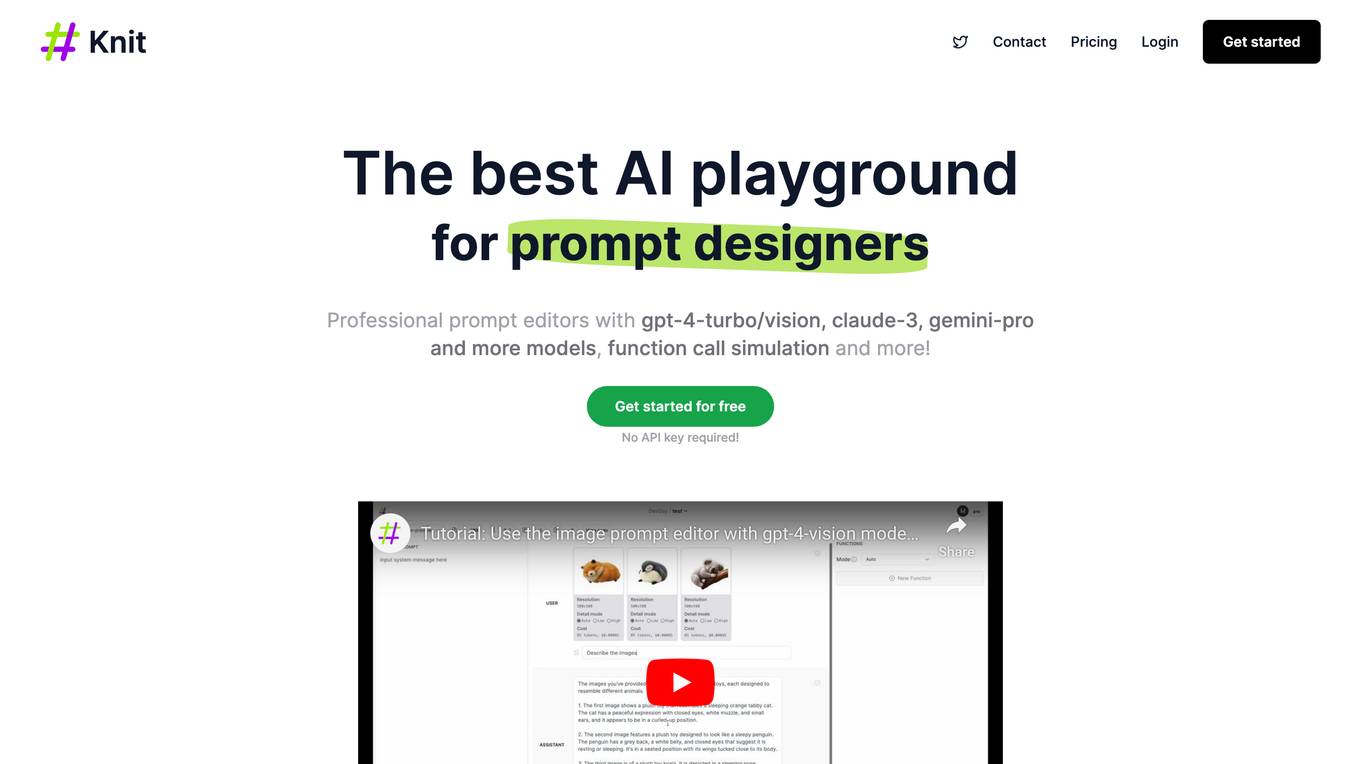
Knit
Knit is an AI playground for prompt designers. It provides professional prompt editors with various models, including GPT-4-turbo/vision, Claude-3, Gemini-pro, and more. Users can store, edit, and run their prompts in Knit. It also offers project management features, allowing users to organize prompts with projects, set up projects for different use cases, and collaborate with team members. Knit supports different kinds of models, including OpenAI, Claude, Azure OpenAI, and plans to support more in the future. It allows users to control API parameters, export code instantly, and provides security features such as encryption and version control.
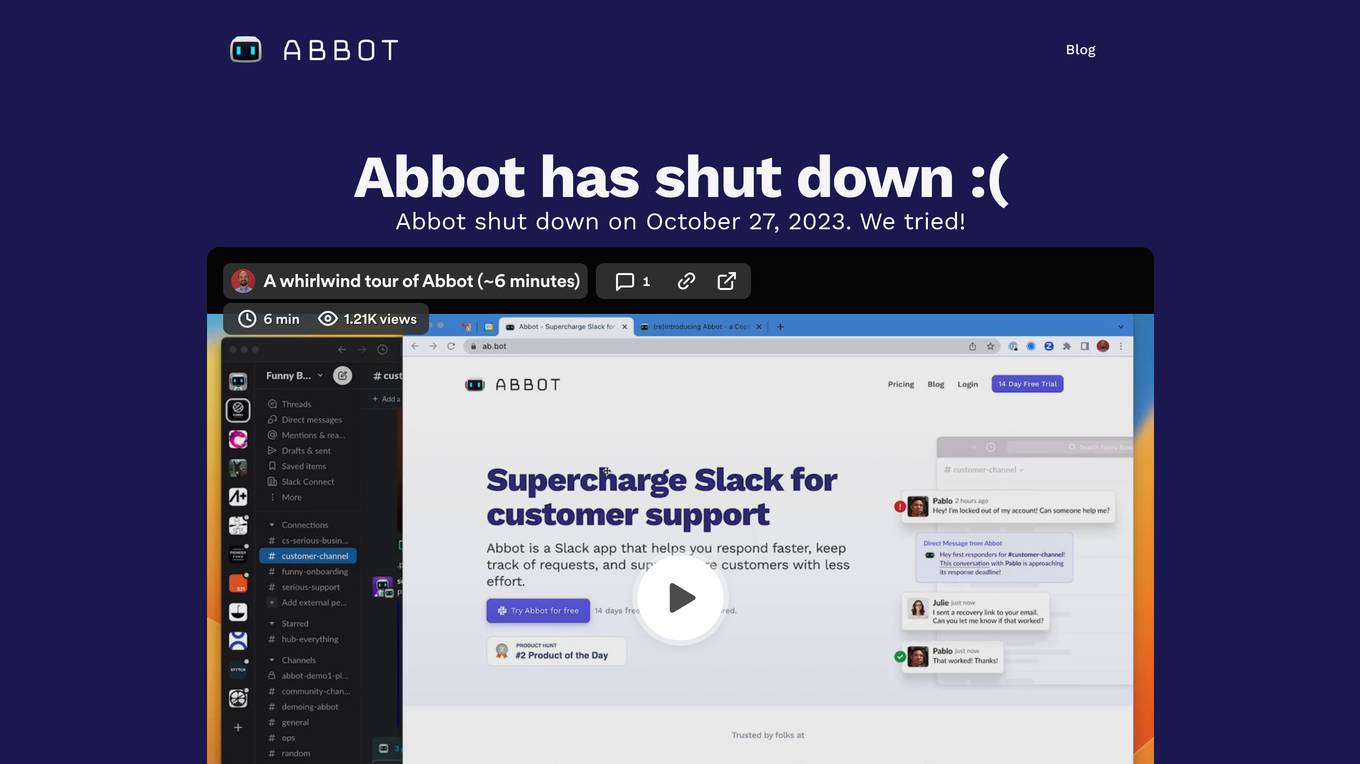
Abbot
Abbot is a programmable smart assistant designed to enhance customer success by working alongside users in team chat environments. It helps in tracking customer conversations, automating tasks, integrating with various systems, providing insights, and ensuring timely responses. Abbot can be trained on documentation, run custom scripts, summarize conversations, and suggest next steps. It offers security compliance and different pricing plans tailored for teams and enterprises.
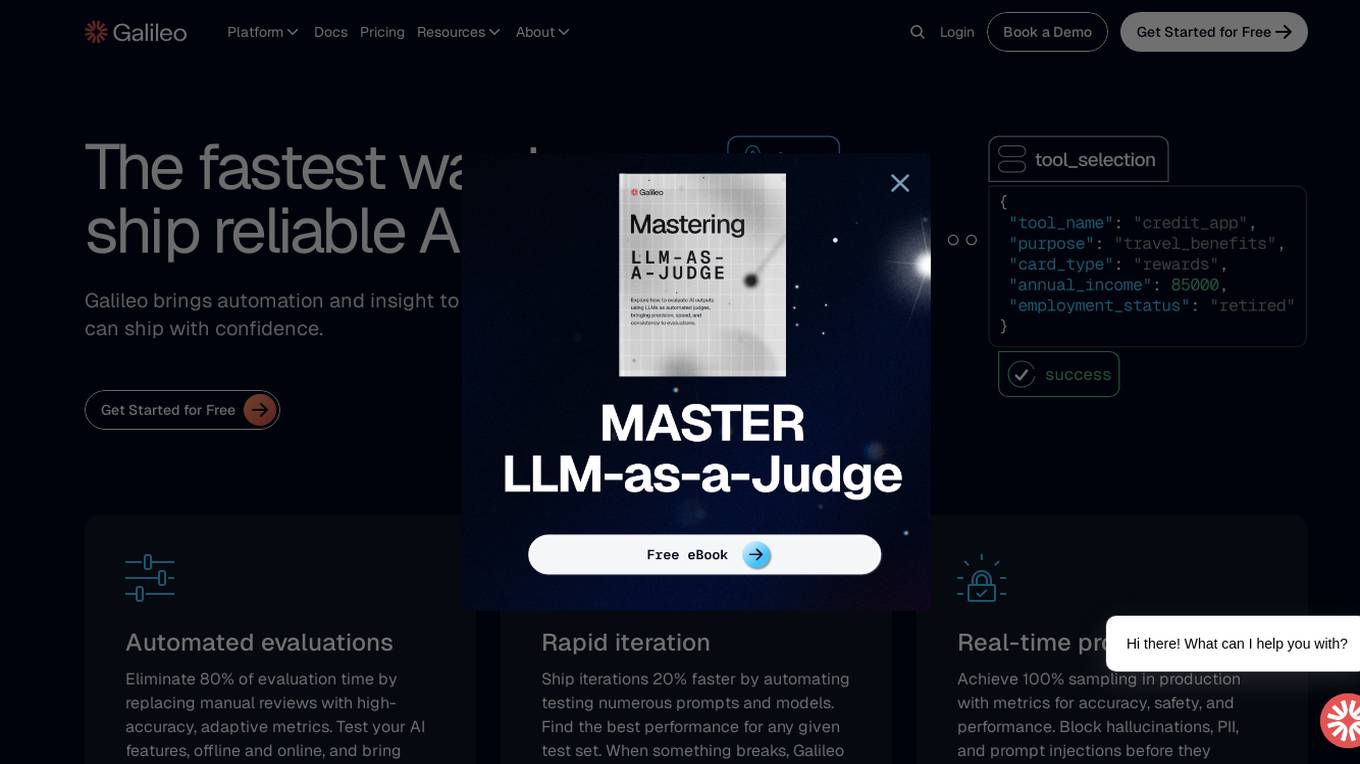
Galileo AI
Galileo AI is a platform that offers automated evaluations for AI applications, bringing automation and insight to AI evaluations to ensure reliable and confident shipping. It helps in eliminating 80% of evaluation time by replacing manual reviews with high-accuracy metrics, enabling rapid iteration, achieving real-time protection, and providing end-to-end visibility into agent completions. Galileo also allows developers to take control of AI complexity, de-risk AI in production, and deploy AI applications flexibly across different environments. The platform is trusted by enterprises and loved by developers for its accuracy, low-latency, and ability to run on L4 GPUs.

NVIDIA Run:ai
NVIDIA Run:ai is an enterprise platform for AI workloads and GPU orchestration. It accelerates AI and machine learning operations by addressing key infrastructure challenges through dynamic resource allocation, comprehensive AI life-cycle support, and strategic resource management. The platform significantly enhances GPU efficiency and workload capacity by pooling resources across environments and utilizing advanced orchestration. NVIDIA Run:ai provides unparalleled flexibility and adaptability, supporting public clouds, private clouds, hybrid environments, or on-premises data centers.
1 - Open Source AI Tools
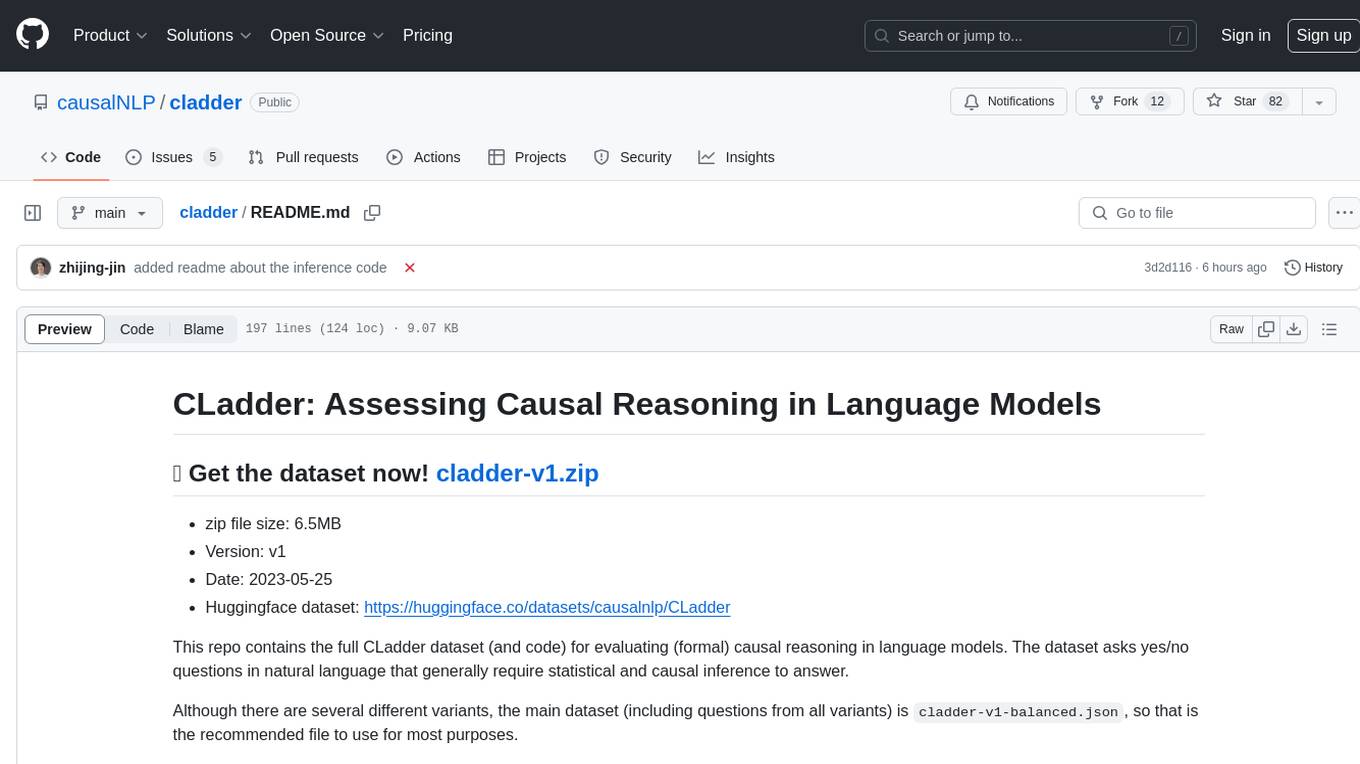
cladder
CLadder is a repository containing the CLadder dataset for evaluating causal reasoning in language models. The dataset consists of yes/no questions in natural language that require statistical and causal inference to answer. It includes fields such as question_id, given_info, question, answer, reasoning, and metadata like query_type and rung. The dataset also provides prompts for evaluating language models and example questions with associated reasoning steps. Additionally, it offers dataset statistics, data variants, and code setup instructions for using the repository.
20 - OpenAI Gpts

Consulting & Investment Banking Interview Prep GPT
Run mock interviews, review content and get tips to ace strategy consulting and investment banking interviews

Dungeon Master's Assistant
Your new DM's screen: helping Dungeon Masters to craft & run amazing D&D adventures.

Database Builder
Hosts a real SQLite database and helps you create tables, make schema changes, and run SQL queries, ideal for all levels of database administration.

Restaurant Startup Guide
Meet the Restaurant Startup Guide GPT: your friendly guide in the restaurant biz. It offers casual, approachable advice to help you start and run your own restaurant with ease.

Community Design™
A community-building GPT based on the wildly popular Community Design™ framework from Mighty Networks. Start creating communities that run themselves.

Code Helper for Web Application Development
Friendly web assistant for efficient code. Ask the wizard to create an application and you will get the HTML, CSS and Javascript code ready to run your web application.

Creative Director GPT
I'm your brainstorm muse in marketing and advertising; the creativity machine you need to sharpen the skills, land the job, generate the ideas, win the pitches, build the brands, ace the awards, or even run your own agency. Psst... don't let your clients find out about me! 😉

Pace Assistant
Provides running splits for Strava Routes, accounting for distance and elevation changes
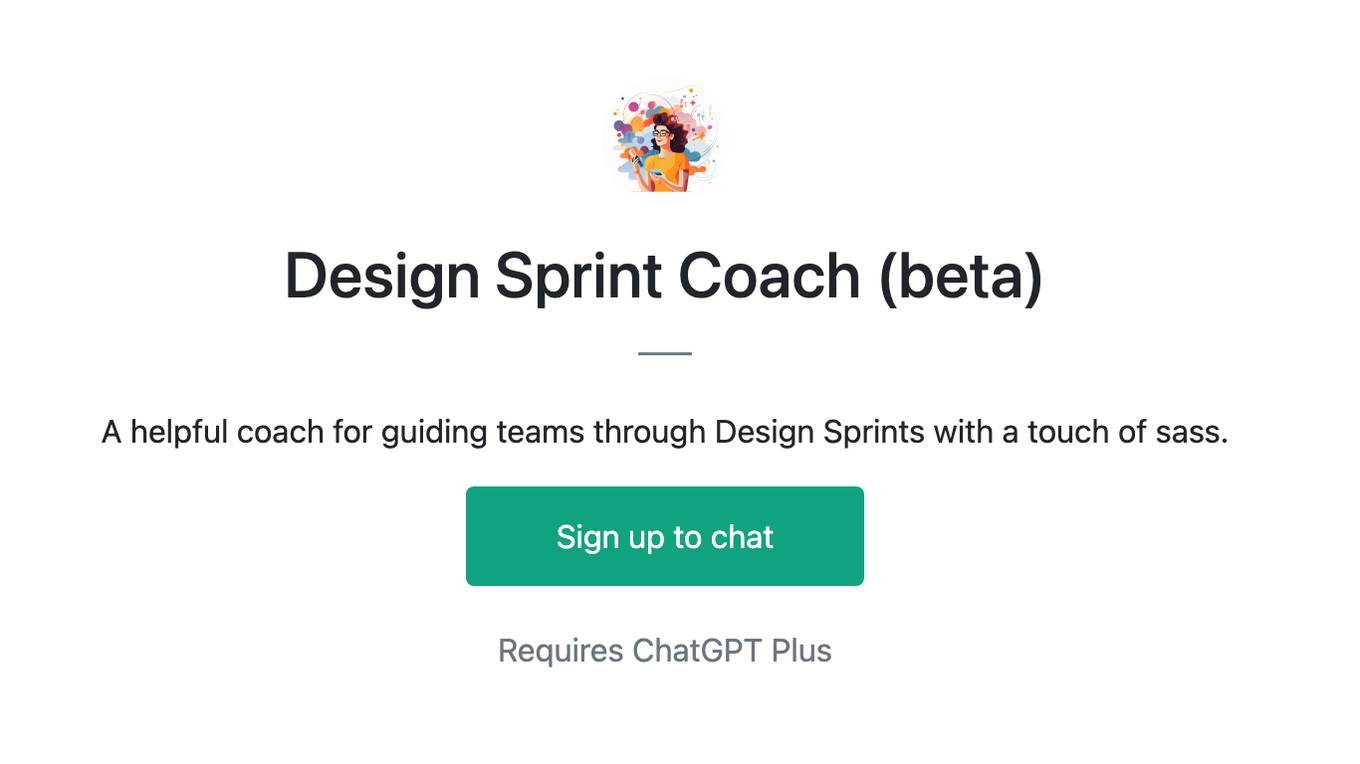
Design Sprint Coach (beta)
A helpful coach for guiding teams through Design Sprints with a touch of sass.








